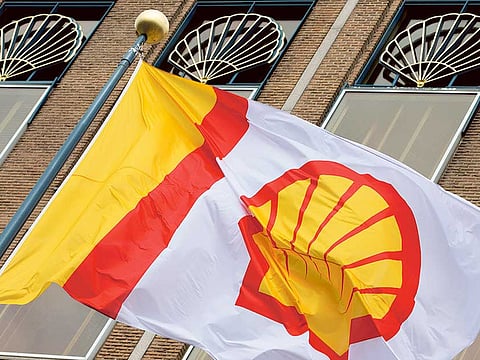Oil shock: Royal Dutch Shell cuts dividend for first time since WW2
Decision provides stark reminder of what is in store for energy industry

The Hague, Netherlands: Royal Dutch Shell cut its dividend for the first time since World War II as the oil slump triggered by the coronavirus pandemic reshapes the energy industry.
The surprise move is the latest illustration of how the global spread of the deadly disease is causing the biggest upheaval for generations. Energy consumption is undergoing a historic plunge.
The global economy that emerges from the other side of the crisis may look very different, with lasting changes to patterns of fuel demand.
This is a big moment in the history of Shell and the oil industry. The company was by far the biggest payer in the FTSE-100, and providing a reliable income to millions of pension fund investors. The two-thirds reduction in its dividend to 16 cents a share will shock investors, but also underscores the gloomy outlook for the year.
"It is of course a difficult day, but on the other hand it's also an inevitable moment," Shell CEO Ben van Beurden said. "We have reset our dividend to a level we believe is affordable" and gives the company room to maneuver and continue to invest in the energy transition, he said.
More distress ahead
Weak earnings in the first three months of the year are expected to be followed by an even tougher second quarter as lockdowns all over the world cause a historic slump in demand. Shell warned that it may need to curtail production of unwanted oil or natural gas.
Shell faces a "crisis of uncertainty" about energy consumption, prices and maybe even about the viability of some of its assets, van Beurden said. The dividend cut was based on "quite a bleak scenario" and "we don't know what will be on the other side of this pandemic."
US oil giant Exxon Mobil Corp. has frozen its dividend for the first time in 13 years, but until Thursday only Norway's Equinor ASA had gone as far as cutting its payout.
"This is the new normal. Shell looks to be preparing for a prolonged downturn and wants to maintain its financial health," said RBC analyst Biraj Borkhataria. In the long-term, it could be seen as a positive move allowing Shell "to pivot more easily through the energy transition, and not be tied to a $15 billion dividend to service each year."
Difficult to carry through
The Anglo-Dutch company's shareholder returns were already looking unaffordable before the virus hit. The company said in January that it had slowed the pace of its share buyback programme and was unlikely to hit its $25 billion target this year.
In March, it announced the cancellation of the next tranche of purchases as the severity of the pandemic became clear.
Shell has reset the level of its dividend and will continue to evaluate its "capital allocation priorities," Holliday said. Increasing shareholder returns "remains our ambition," he said.
Shell's adjusted net income was $2.86 billion in the first quarter, down 46 per cent from a year earlier but exceeding the average analyst estimate of $2.29 billion. Estimates have been revised significantly down since March, when the pandemic began to accelerate.
Sign up for the Daily Briefing
Get the latest news and updates straight to your inbox






